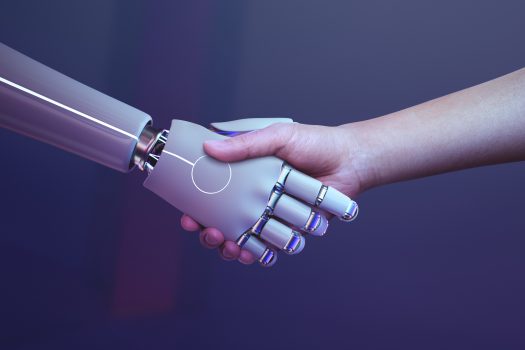Is this the dawn of advertising's generative AI era?
by on 10th Feb 2023 in News

This may well be the week that the generative AI phony war ended.
The major players have all broken cover, falling over themselves to announce their own AI chatbots and make the first dent in the market. The arms race began in earnest as Microsoft announced a revamped version of its Bing search engine, with integrated ChatGPT.
Chinese search giant Baidu also announced that it will be launching the AI chatbot Wenxin Yiyan, or Ernie bot, in March, while privacy-centric search newcomer Neeva had already introduced NeevaAI on January 5th.
Google swiftly followed, announcing its own generative AI chat technology, and has since named it ‘Google Bard’. As many do, Bard slipped up on its first day at work, making an error in its fact sourcing. Less commonly, Bard’s mistake wiped $100bn off its parent company’s share price overnight. We might still need humans after all.
The technology could reinvigorate the search market, and Google’s misstep only fuels the suggestion that the pre-eminent search engine faces a genuine challenge to its 92.9% market dominance in the area for the first time in at least a decade.
But what could the new tech mean for advertisers? How can generative AI make a difference to the industry, and in what areas will we see the greatest impact? We threw the question out to some industry leaders, and some of chat tech itself, to see what could be coming up:
“The question is how can I use AI to actually improve my ROI?”

The question brands should be asking themselves is: as a business owner, how can I use AI to actually improve my ROI, and who is training my AI? It begins by taking a hard look at the components of your ad stack, understanding which ones are the most critical, and among those, which ones should be AI-powered.
Bidding is 100% AI-based when customisable algorithms are used. Brands must remember that AI needs to be trained to deliver performance without using PII for targeting to respect consumers and ensure spend is optimised 100% towards maximising ROAS. Bidding AI needs to be purpose-built, customisable and dynamic, add learnings from past campaigns to future campaigns, and consistently create new opportunities for automation to improve campaign scale.
Nadia Gonzalez, CMO, Scibids
“What we are seeing more is how humans and machines can work together to produce better quality of work.”

It's indeed an exciting space to watch, and definitely a game changer, though Generative AI is probably now at the top of its Gartner Hype Cycle. In my previous article with ExchangeWire, I mentioned that GPT3 has already started their in-road into the Creative Automation space, and more recently, major advertisers are asking questions around how they can incorporate Generative AI into their process.
One of the key areas is the automation of the process of creating and testing new ad concepts, allowing advertisers to quickly identify what works and what doesn't, leading to more effective campaigns. Additionally, generative AI can produce new creative content in real-time, making it easier to scale and adapt based on campaign performance. Human intervention is still an important element here, but what we are seeing more is how humans and machines can work together to produce better quality of work, adhere to consistent branding, and ensure originality and prevent bias.
Travis Teo, co-founder, Adzymic
“Fears it will replace human input are overblown”

ChatGPT can accelerate creative processes, though fears it will replace human input are overblown. By design, it can only iterate on what already exists, and it cannot tell fact from fiction. What is more exciting than its output is its ability to interpret natural language with an exceptionally high degree of accuracy. We’ve all learned how to adjust our syntax to be understood by computers, but now that computers can understand us, they can fulfill their promise as virtual assistants — just not assistants we can trust to be truthful or possess genuine creativity.
Alison Harding, VP of data solutions, EMEA, Lotame
“Advertisers can quickly and effectively create ads that speak directly to their audience”

Generative AI has the potential to be a game changer for advertising, as it can automate and speed up the creative process and help generate new ideas. However, like all emerging technologies, there are still challenges that must be addressed before it can be widely adopted.
Despite these challenges, there are already many examples of companies using generative AI to create advertisements, ranging from personalised product recommendations to entire ad campaigns. As AI technology continues to evolve and mature, it is likely that we will see even more innovative uses of generative AI in the advertising industry.
“A likely outcome is more accurate predictions and optimisations”

There are many positive implications of generative AI as it applies to the advertising space. One in particular is the potential to improve our approach to testing. A likely outcome is more accurate predictions and optimisations when trying to understand the connection between content and audiences - before you spend even a penny on an impression.
You can, of course, test these predictions in real-time as you do now, but the overall outcome will surpass benchmarks, and the road to get there will be much more efficient all around.
Oz Etzioni, CEO & co-founder of Clinch
“The art of creating customer motivation is still very much a human act”

Although generative AI is a relatively new tech, predictive AI has been part of the advertising ecosystem for years. AI already plays a massive role in decisioning around programmatic ad buying.
Where both types of AI drive impact is around automation. Now, generative AI creates opportunities to reduce complexity around the creation of digital ads, and makes it possible to test creative at scale in completely new ways.
I wouldn’t say it’s a game changer: advertising still exists to motivate real people to spend their money on real products and services. While machines can help generate copy faster, or reduce friction when bidding on an impression, the art of creating customer motivation is still very much a human act.
Amit Monheit, co-founder and CEO, Odeeo
“It will enhance linguistic creativity tasks”

Generative AI is still in the early stages of its hype cycle, and it will be a long time before the industry settles into new standards and ways of working that incorporate the technologies. That said, there are already many ways innovative teams are using generative AI to create value and efficiency.
One such example is using it to enhance linguistic creativity tasks. This can include copywriting, organic social posts, sales emails, internal memos, and basically any application where the user knows what to write but is not sure how to best write it. This same utility can be extended to writing code and data wrangling to a lesser extent.
Vincent Niou, vice president, data & technology, APAC, EssenceMediacom
“The excellence of our talent can be saved for adding the creative spark”

It’s certainly a game changer in the way that the printing press, the loom, or the car were game changers in their industries at the time - it’s not necessarily that they meant new things were possible, but that existing problems could be solved much faster. And it’s the same with generative AI today. We can visualise and generate ideas more quickly, allowing bad ones to be surfaced and ruled out faster. We can let AI do a lot of the grunt work so that the excellence of our talent can be saved for adding the creative spark and the human touch.
With the advent of generative AI, the advertising industry is undergoing another huge evolution. Like the shift from analogue processes and traditional media to digital workflows and internet platforms, AI is changing both the way advertising is created and consumed. Agencies will need to understand how to use off-the-shelf tools but would be wise to invest in machine learning expertise in house because in a world where everyone is using the tools, those who can create bespoke or customised AI of their own will gain an edge in being able to create things that feel fresh, different and stand out.
Ted Wallace-Williams, associate creative technology director, R/GA London
“It will remove complexity”

There is no question that generative AI will fundamentally change the advertising industry.
It will have a similar impact on advertising as other industries by removing the complexity typically associated with scaling organisations of smart people. Said another way, generative AI makes the creation of, and iteration on, low fidelity work cheap, increasing the bandwidth of talent.
Marc Guldimann, CEO, Adelaide
“There are plenty of question marks around the third-party sources”

ChatGPT has certainly supercharged excitement for what might be possible with generative AI in advertising. And though it’s not going to replace everything like some might have you believe, it certainly has the potential to be a game changer.
The opportunities for media planning and creative applications of AI are undoubtedly there. For example, as Gartner recently suggested, generative AI could help with customer characterisation and targeting in the face of third-party data deprecation. However, there are still plenty of question marks around the third-party sources the likes of ChatGPT and DALL-E rely on. The year ahead will therefore be one of experimentation, learning and understanding.
Niall Moody, CRO, Nano Interactive
“What do we value more - originality or speed?”

The integration of AI into advertising practices seems inevitable, yet its practical application needs to be considered. Relying on AI for creative purposes such as writing or imagery raises serious issues around copyright and the value we place on creativity. Original, quality work takes time, and it gives people purpose.
AI models such as ChatGPT can produce a lot of generic text faster – so the question is, which do we value more? Whatever happens, we need to make sure social and legal structures do not get left behind as technology continues to accelerate.
Rob Sewell, CEO, SmartFrame Technologies






